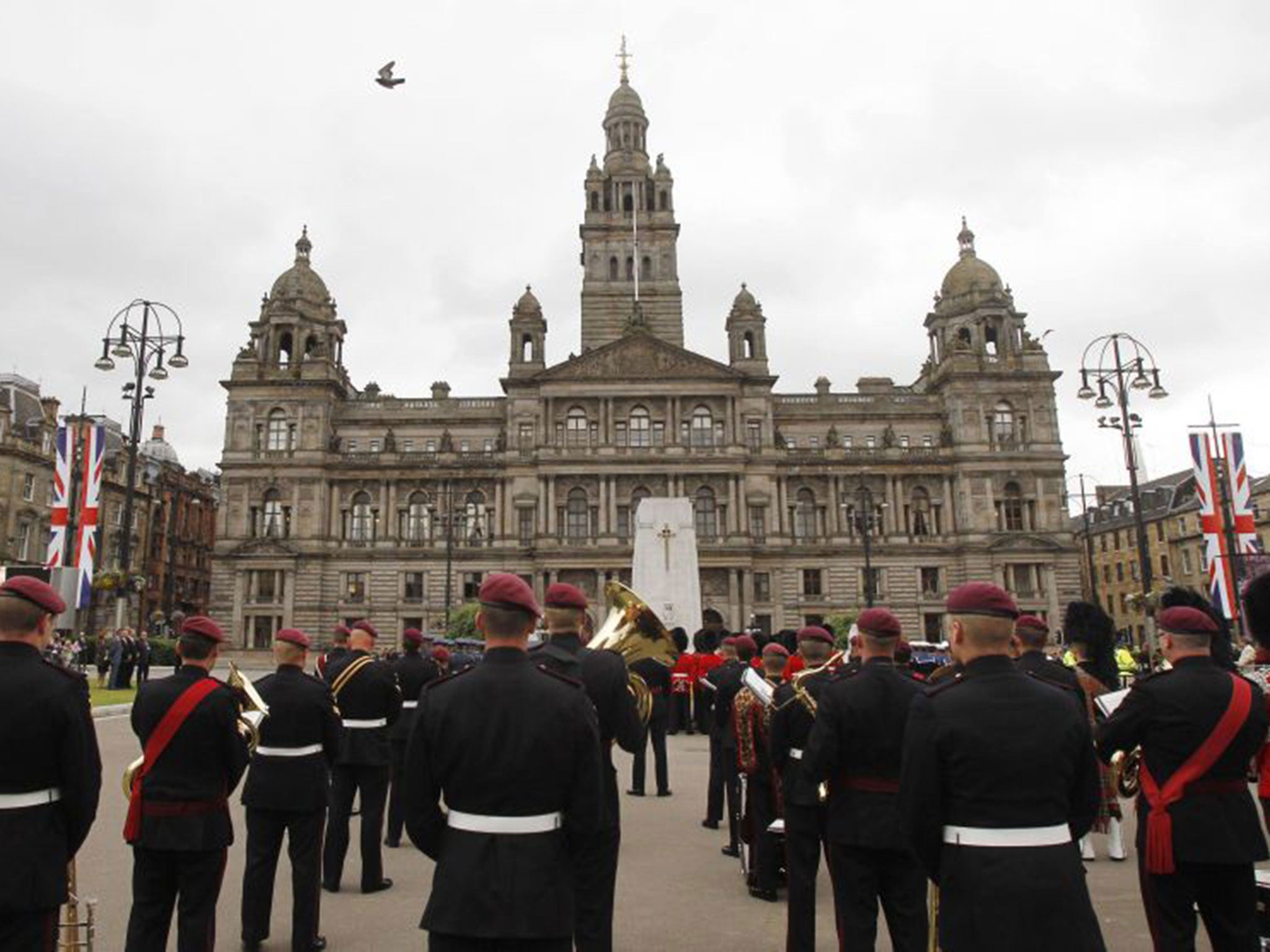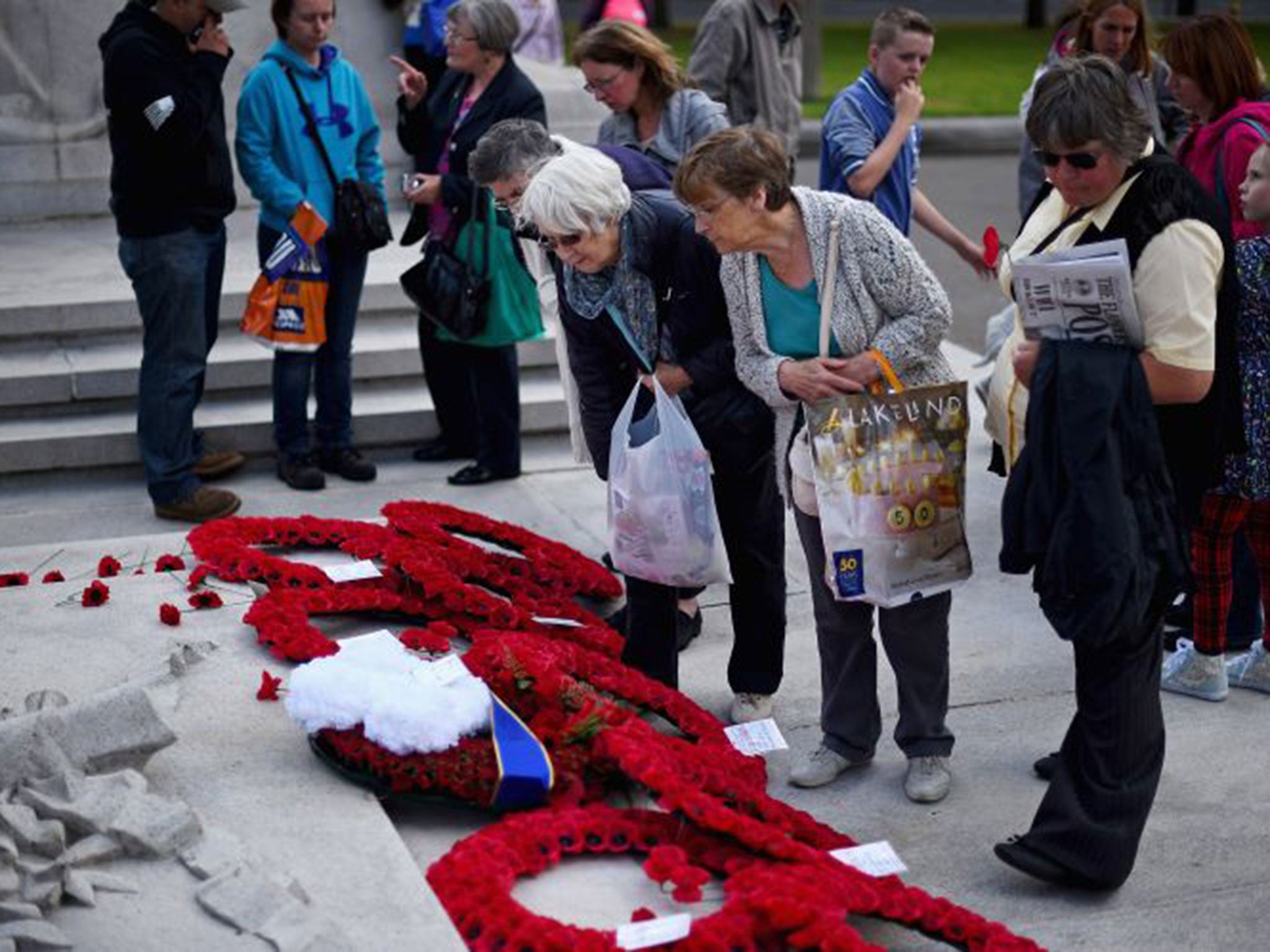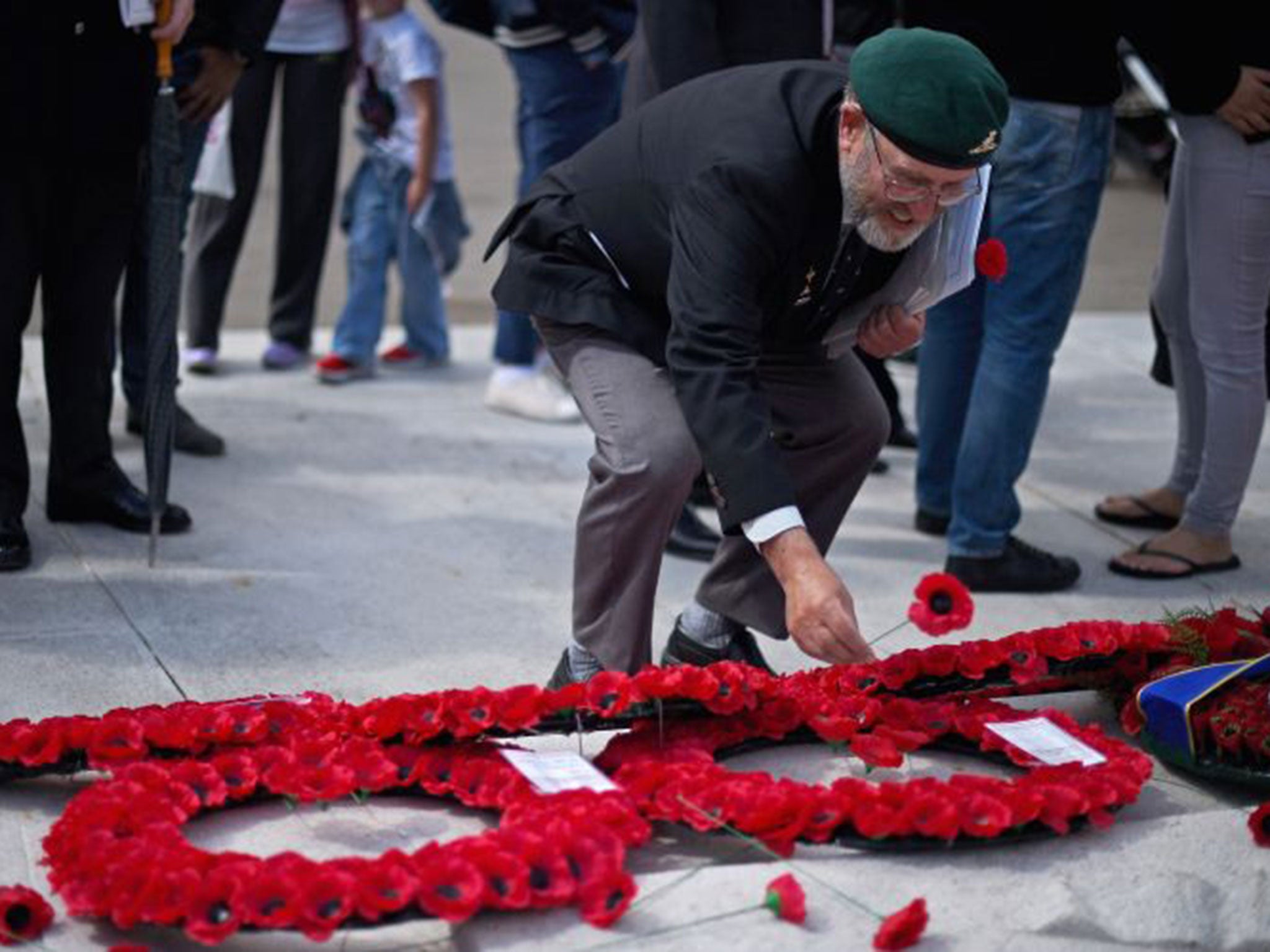First World War Centenary: Glasgow switches from sporting triumph to sober recollection

Your support helps us to tell the story
From reproductive rights to climate change to Big Tech, The Independent is on the ground when the story is developing. Whether it's investigating the financials of Elon Musk's pro-Trump PAC or producing our latest documentary, 'The A Word', which shines a light on the American women fighting for reproductive rights, we know how important it is to parse out the facts from the messaging.
At such a critical moment in US history, we need reporters on the ground. Your donation allows us to keep sending journalists to speak to both sides of the story.
The Independent is trusted by Americans across the entire political spectrum. And unlike many other quality news outlets, we choose not to lock Americans out of our reporting and analysis with paywalls. We believe quality journalism should be available to everyone, paid for by those who can afford it.
Your support makes all the difference.From the ecstasy of sporting glory to the the hell and horror of remembered war.
After welcoming the world for almost two weeks of athletic contest at the Commonwealth Games, Glasgow fell quiet yesterday as locals and visitors reflected on a time when international rivalries had darker consquences.
At 9.30am, a half hour before the gathered dignitaries including Prince Charles David Cameron were fully seated in Glasgow Cathedral for a special service to mark the outbreak of the Great War, eight-year old Cooper Black from the nearby town of Cambuslang was already in place and proudly holding his ticket in George Square in the city centre.
Last year Cooper travelled to the Somme battlefield with his father and his sister Eva. He said he wanted to visit the square - the site of the main UK cenotaph commemoration - to “thank the soldiers because they fought for us.”
Along the line from the Black family - and wearing the bright yellow officials’ jacket that he had worn to the Games - was Alan Juleosi from the tiny South Pacific island state of Niue. He wished to pay his respects in person “because my grandfather joined up the day the war started.”
The Polynesian island, with a population of 1,190 is the size of small parish. But Alan’s grandfather, like others, joined the larger New Zealand force that sent its young men to Europe.
A few paces away, a Commonwealth athlete from the South Atlantic island of St Helena also paid his respects. If he had been born 100 years earlier, Lee Yoen might have signed up for one of the Scottish regiments with which his nation had ties and fought in the trenches, rather than travel to Europe to play badminton for his country.

He admitted to “not listening in school” when the First World War was being taught. “But it interests me now.”
In the cathedral a few miles away, broadcaster Sir Trevor McDonald promised that over the next four years – the duration of the war – more would be heard of the “courage and suffering” of who those who fought and gave their lives.
There are dangers in such services of remembrance that war itself looks like it is being celebrated.
Inside the cathedral, there were evident efforts to prevent that. Acknowledgement of the “mixed feelings of the legacy” left by the conflict were stated; that more could have been done diplomatically to prevent it. Gordon Campbell, the Canadian High Commissioner, spoke of the “flaming wind of war”.
Ranjan Mathai, India’s High Commissioner, used the words of a Punjabi Rajpuyt soldier to describe the rendezvous with death and the horrific truths that those not on the frontline never fully appreciated at the time. “Do not think this is war. This is not war. It is the ending of the world,” the soldier wrote.
Perhaps the most moving reading came from Joanne Thomson. Recently graduated from Glasgow’s Royal Conservatoire, she took on the role of the young wife of the Welsh poet Edward Thomas, who knew when waving goodbye to her officer husband, it would be the last time she would see him alive. In character and close to tears she said “there was nothing but the mist and snow and the silence of death.”
The 11 days of competition at Glasgow 2014 were timed to end the day before the centenary of the Great War. It ensured that representatives from across the Commonwealth were in Scotland to mark what one speaker called the “day the world changed … and the memory of which still haunts us.”

However one army major in George Square, there to pay respects, but not part of the official service, remarked that although the lessons of the Great War are taught, it was “never the war to end all wars”. Conflicts in Iraq and Afghanistan and elsewhere reveal that war remains an enduring political reflex, and is not always the end result of failed diplomacy.
In the square, the Duke of Rothesay – as the Prince of Wales in known in Scotland – laid the first wreath of the cenotaph ceremony. Further wreaths were gently placed by the Prime Minister, the Deputy PM, Nick Clegg, the Labour leader, Ed Milband, and the heads of the UK’s three devolved parliaments, including Alex Salmond, Scotland’s First Minister. Scores of Commonwealth representatives followed.
The pipes and drums of the Scots Guards, the band of the Parachute Regiment, and representatives of the army, Royal Navy and Royal Air Force, all stood silent. And as a lone bugler played the Last Post, two women in a corner of the square lifted a small home-made banner embroidered with the words “Lest we Forget”.
But we do. Less than a year after the Great War ended in 1919, the coalition government in Westminster ordered troops and tanks into George Square to quell angry trade union demonstrations demanding lower working hours to ease growing post-war unemployment.
A 4.5 Howitzer field gun was placed outside the City Chambers. David Cameron and Prince Charles stood in almost the same spot for the service’s march-past.
Join our commenting forum
Join thought-provoking conversations, follow other Independent readers and see their replies
Comments